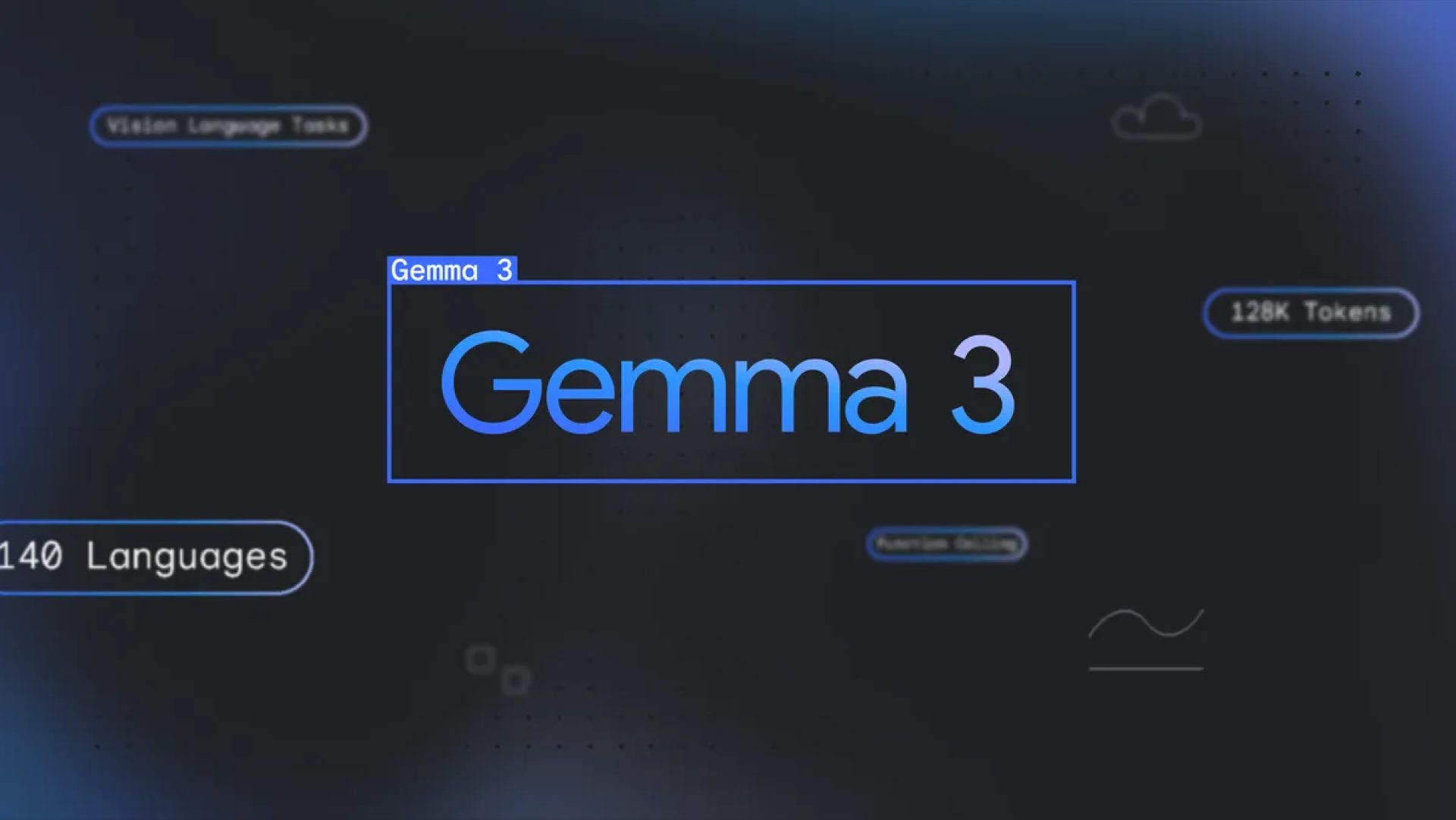On March 12, Google announced the launch of Gemma 3, an open-source AI model, on its official blog. This significant release allows developers to freely utilize and adapt the model for their projects. Notably, this announcement comes just a month after Gemma’s first anniversary, during which the model has seen an astonishing 100 million downloads and over 60,000 custom implementations by the developer community.
Gemma 3 is a lightweight, open-source AI model that leverages the same technology as the Gemini 2.0 model. One of its standout features is the ability to be installed and run directly on various devices, including smartphones, laptops, and computer workstations. This flexibility enables AI development from virtually anywhere, with the model available in multiple sizes – 1B, 4B, 12B, and 27B parameters – to accommodate different devices.
What sets Gemma 3 apart is its high performance, even when running on a single GPU or TPU, surpassing current leading models. According to LMArena’s leaderboard, which evaluates AI models from a real-world user perspective, Gemma 3 outperforms models like Meta’s Llama-405B, DeepSeek-V3, and OpenAI’s o3-mini. Additionally, it supports 140 languages worldwide and features advanced reasoning capabilities for both text and images, making it simple to create apps for analyzing images, text, and short videos. The model also boasts an expanded context window, capable of handling up to 128k tokens.
Furthermore, Gemma 3 comes with ShieldGemma 2, a 4B safety inspection model that includes features for image safety checks, categorizing content as hazardous, explicit, or violent. Developers can download the model from Hugging Face and Kaggle, and fine-tune it using various tools like Hugging Face Transformers, Ollama, JAX, Keras, PyTorch, Google AI Edge, UnSloth, vLLM, and Gemma.cpp.
The model can be trained and fine-tuned through Google Colab, Vertex AI, or even gaming computers equipped with NVIDIA or AMD GPUs via the ROCm stack and Google Cloud TPU. Once trained, the model can be deployed through multiple channels, including Vertex AI, Cloud Run, Google GenAI API, or by creating an environment on a computer or other platforms.
Examples of successful models developed from Gemma include AI Singapore’s SEA-LION v3, INSAIT’s BgGPT in Bulgaria, and Nexa AI’s OmniAudio, which leverages advanced audio processing on mobile devices. To foster further research, Google has launched the Gemma 3 Academic program, which encourages researchers to utilize Gemma 3 for their studies. The program is now accepting applications for Google Cloud credits worth $10,000 per award. The application form is available now, and the program will run for four weeks.

